Charles Dickens (1870-1812)j
.h"It was the best of times, it was the worst of times, it was the age of wisdom, it was the age of foolishness, it was the epoch of belief, it was the epoch of incredulity, it was the season of Light, it was the season of Darkness, it was the spring of hope, it was the winter of despair, we had everything before us, we had nothing before us, we were all going direct to heaven, we were all going direct the other way - in short, the period was so far like the present period, that some of its noisiest authorities insisted on its being received, for good or for evil, in the superlative degree of comparison only "
A Tale of Two Cities
Hello dear friends and how are you ?
Today we're gonna sneak inside the English literature world
and particulary the world of The greatest novelist of the victorian era (Charles Dickens ) the friend of the poor !
For Every reader whose fond of literature and specifically Dickens's works , I dedicated this thread to be used as a reference for Charles Dickens's works in our forum
to get knowledge as well as entertainment....
Who Is He?
English novelist, generally considered the greatest of the Victorian period. Dickens's works are charactericized by attacks on social evils, unjustice, and hypocrisy. He had also experienced in his youth oppression, when he was forced to end school in early teens and work in a factory. Dickens's lively good, bad and comic characters, such as the cruel miser Scrooge, the aspiring novelist David Copperfield, or the trusting and innocent Mr. Pickwick, have fascinated generations .
The life of Charles Dickens:
Charles Dickens was born in a suburb of Portsmouth named Landport, England on 7th February 1812. His mother was Elizabeth (later Charles used her to form the character of Mrs. Nickleby) and his father was John Dickens (whom Charles depicted as Mr. Micawber in "David Copperfield").
When Charles was two years old, his father moved the family to London then to Chatham two years later, where Charles received some schooling, although he was supposedly already an avid reader.
In 1821, there were reforms in the Navy and John lost his post as clerk in the navy pay office and therefore most of the family income. As a result the family moved again, to Camden Town, London.
Within three years, John Dickens was arrested for debt and was imprisoned in the Marshalsea prison along with the rest of the family except Charles...
At the age of 12 years, Charles was put to work in Warren's Blacking factory situated at Hungerford Market in order to clear some of his father's debts. At first he lodged in Camden and walked four miles to the factory every day, visiting his family at the weekend until they found lodgings for him close to their location.
Nearly four months after his arrest, Charles' father was released from prison and the family returned to Camden Town. Although his mother, Elizabeth, wanted Charles to continue to work at the blacking factory, his father chose to send him to school where he studied until he turned 15.
Charles' first chosen career was as a journalist, he became a free lance reporter at Doctor's Common Courts after working for two years as an office boy for an attorney. He also acted as a parliamentary reporter during the 'Reform Bill' legislation.
In 1834, Charles worked as a reporter for the Morning Chronicle under the pseudonym "Boz" (this name was derived from Moses - Boses - Boz, one of Charles' favourite characters in "Vicar of Wakefield" by Goldsmith). The same year his father was again arrested for debt and Charles, for a second time, helped him out. Later, Charles was frequently requested by his entire family to supply them with financial aid.
The first fictional story that Charles had published appeared in "Monthly Magazine." It was entitled "Dinner at Poplar Walk." 1833. The initial "Sketches by Boz" was published in 1836 (in April that year, Charles and Elizabeth Hogarth married), followed by "The Pickwick Papers". His literary career simply took off from that point and Charles became a full time novelist, his first work being "Oliver Twist".
Much of Charles' work was first published as monthly periodicals Although he began to release a Christmas book on a regular basis, the first of which being "A Christmas Carol," published in 1844 and the last being "The Haunted Man" in 1849.
From 1842, Charles and his family began to travel throughout the world. Initially visiting Canada and the United States. He later travelled to Italy, Switzerland and France.
After his tour of the US and Canada, he published "American Notes" which didn't go down well in the US, being that, at that time, it was a relatively new nation and hadn't developed much of an attitude or sense of humour to anti-slavery. Alternatively it could have been that Charles expressed an offensive attitude towards tobacco chewing, which, by his own account was practiced widely. In 1845, Dickens founded an amateur theatrical company which he continued until the end of his life and was to take up a great deal of his time. He later travelled
with Wilkie Collins and Augustus Egg, the former of which co-wrote the play "The Frozen Deep" with Dickens.
On 8 June 1870, Dickens suffered another stroke at his home, after a full day's work on Edwin Drood. The next day, on 9 June, and five years to the day after the Staplehurst crash, he died at Gad's Hill Place never having regained consciousness. Contrary to his wish to be buried at ٌٌٌRochester cathedral "in an inexpensive, unostentatious, and strictly private manner", he was laid to rest in the Poet's corner of Westminster abbey. A printed epitaph circulated at the time of the funeral reads: "To the Memory of Charles Dickens (England's most popular author) who died at his residence, Higham, near Rochester, Kent, 9 June 1870, aged 58 years. He was a sympathiser with the poor, the suffering, and the oppressed; and by his death, one of England's greatest writers is lost to the world."Dickens's last words, as reported in his obituary in The Times were alleged to have been:f
Be natural my children. For the writer that is natural has fullfilled all the rules of art!
His Works:
Note :you need Adobe's Acrobat Reader to be able to open the files
just click to dowload
Here
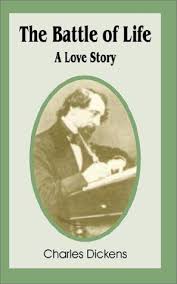
The Battle of Life
Here

Little Dorrit
Here
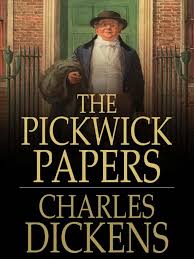
The Pickwick Papers
Here

The Old Curiosity Shop
Here
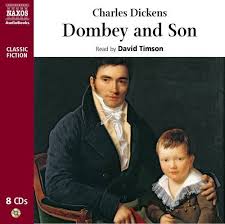
Dombey & Son
Here
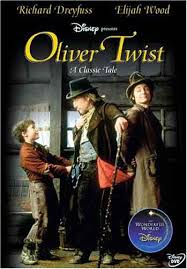
Oliver Twist
Here
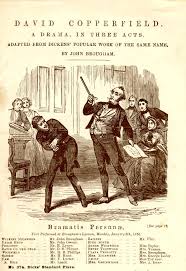
David Copperfield
Here
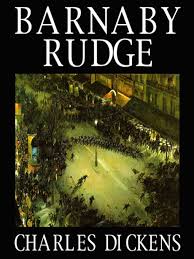
Barnaby Rudge
Here
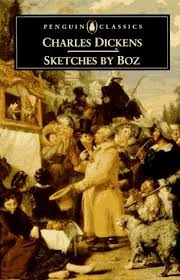
Sketches by Boz
Here

Martin Chuzzlewit
Here

Our Mutual Friend
Here

Pictures from Italy
Here
The Lazy Tour of Two Idle Apprentices
Here
The Chimes
Here
A CHILD'S HISTORY OF ENGLAND
Here
American Notes
Here
The Mystery of Edwin Drood
Here
by this novel we can say our author made the end of his works ,
not because he pleased to,but coz he died before he even finished its chapters .
OoOoO
Other links by mohbaboo
Here
A Message from the Sea
Here
Hunted Down
Here
Somebody's Luggage
here
Seven Poor Travellers
here
Perils of Certain English Prisoners
here
The Wreck of the Golden Mary
here
Sunday under Three Heads
here
Going into Society
here
Doctor Marigold
here
George Silverman's Explanation
here
To Be Read At Dusk
here
OoOoO
Other links by mohbaboo
here
l“A loving heart is the truest wisdom.”
“Have a heart that never hardens, and a temper that never tires, and a touch that never hurts"
"There is nothing so strong or safe in an emergency of life as the simple truth"
“A heart well worth winning, and well won. A heart that, once won, goes through fire and water for the winner, and never changes, and is never daunted.”
"Cheerfulness and contentment are great beautifiers, and are fatuous preservers of youthful looks”
“I never could have done what I have done without the habits of punctuality, order, and diligence, without the determination to concentrate myself on one subject at a time.”
j“Whatever I have tried to do in life, I have tried with all my heart to do it well; whatever I have devoted myself to, I have devoted myself completely; in great aims and in small I have always thoroughly been in earnest.
“The pain of parting is nothing to the joy of meeting again.”
“Home is a name, a word, it is a strong one; stronger than magician ever spoke, or spirit ever answered to, in the strongest conjuration.”h
“We need never be ashamed of our tears" hg
"A heart well worth winning, and well won. A heart that, once won, goes through fire and water for the winner, and never changes, and is never daunted.”
"It was the best of times, it was the worst of times, it was the age of wisdom, it was the age of foolishness, it was the epoch of belief, it was the epoch of incredulity, it was the season of Light, it was the season of Darkness, it was the spring of hope, it was the winter of despair, we had everything before us, we had nothing before us, we were all going direct to heaven, we were all going direct the other way - in short, the period was so far like the present period, that some of its noisiest authorities insisted on its being received, for good or for evil, in the superlative degree of comparison only"h
"No one is useless in this world who lightens the burdens of another" hj"
“Life is made of ever so many partings welded together"
“The whole difference between construction and creation is exactly this: that a thing constructed can only be loved after it is constructed; but a thing created is loved before it exists" nb
"kj"I only ask to be free. The butterflies are free "g
k"To conceal anything from those to whom I am attached, is not in my nature. I can never close my lips where I have opened my heart. "
"Charity begins at home, and justice begins next door."
"A wonderful fact to reflect upon, that every human creature is constituted to be that profound
secret and mystery to every other. "
" In the little world in which children have their existence, whosoever brings them up, there is nothing so finely perceived and so finely felt, as injustice. "
" It is a melancholy truth that even great men have their poor relations. "
" There are dark shadows on the earth, but its lights are stronger in the contrast. "
" Renunciation remains sorrow, though a sorrow borne willingly . "k
your sister
Azuma
The Greatest Literary Figure of the Victorian Age
[ منتدى اللغة الإنجليزية ]
النتائج 1 إلى 6 من 6
-
30-9-2010 03:28 AM #1



- تاريخ التسجيل
- Oct 2006
- المـشـــاركــات
- 1,681
- الــــدولــــــــة
- السعودية
- الــجـــــنــــــس
- أنثى
الـتـــقـــــيـيــم:











 The Greatest Literary Figure of the Victorian Age
The Greatest Literary Figure of the Victorian Age
التعديل الأخير تم بواسطة أسمـــاء ; 3-12-2010 الساعة 04:47 AM
-
30-9-2010 06:18 AM #2


- تاريخ التسجيل
- Apr 2008
- المـشـــاركــات
- 8,616
- الــــدولــــــــة
- السعودية
- الــجـــــنــــــس
- ذكر
الـتـــقـــــيـيــم:









 مجموع الاوسمة: 48
مجموع الاوسمة: 48 رد: The Greatest Literary Figure of the Victorian Age
Peace be upon you
رد: The Greatest Literary Figure of the Victorian Age
Peace be upon you
What a great library of one of the writing icons in history
I still remember the days in which I was studying him as part of my studies back during the college
his works are pieces of art indeed
I loved the quotes parts
pretty great actually
I hope this is not the last work of yours in the new world of literature ^^l
here is a long for each section in one link to add them if you wish to the topic
and they are permanent so the links won't expire
Novels
medifire
Short Stories
medifire
thank you very much
and good luck
التعديل الأخير تم بواسطة mohbaboo ; 30-9-2010 الساعة 10:39 AM
-
30-9-2010 11:25 PM #3



- تاريخ التسجيل
- Oct 2006
- المـشـــاركــات
- 1,681
- الــــدولــــــــة
- السعودية
- الــجـــــنــــــس
- أنثى
الـتـــقـــــيـيــم:











 رد: The Greatest Literary Figure of the Victorian Age
رد: The Greatest Literary Figure of the Victorian Age
Indeed , he is a real big name in literature and so we need that name in our forum
!yeah ,The quotes are really expressive, I can say the complete image I drew inside my mind about his time is enough to tell how great he is!
I hope this is not the last work of yours in the new world of literature ^^
when Dickens's name is mentioned , It feels like you don't wanna recall any other name in English literatre^^
Thanks for the links , they're pretty helpful ,I will add them
thanks for the replay as well
Peace be upon you
-
5-10-2010 10:44 AM #4
-
4-11-2010 03:01 PM #5


- تاريخ التسجيل
- Nov 2008
- المـشـــاركــات
- 749
- الــــدولــــــــة
- العراق
- الــجـــــنــــــس
- ذكر
الـتـــقـــــيـيــم:










 رد: The Greatest Literary Figure of the Victorian Age
Peace be upon you
رد: The Greatest Literary Figure of the Victorian Age
Peace be upon you
how r u dear sister Azuma
it's really terrific topic
I didn't know the significance of this person but now I know him well after I read this topic
I know his novel Oliver Twist and it's from novels that i love
I'll read for him another novels in sha Allah and I think I'll define his creativity through it and also through another works that he has done
many thanks sis for this beautiful topic and ^__^ keep going
-
16-11-2010 04:44 AM #6
Loading...



![~[ وسام مشارِكة متميزة ]~ ~[ وسام مشارِكة متميزة ]~](http://www.msoms-anime.net/modsimages/S-girl.gif)



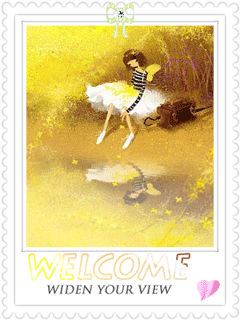


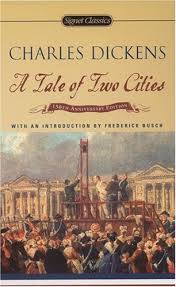





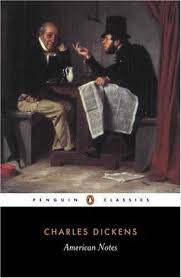







 رد مع اقتباس
رد مع اقتباس



![~[ وسام مشارِك متميز ]~ ~[ وسام مشارِك متميز ]~](http://www.msoms-anime.net/modsimages/S-boy.gif)


المفضلات